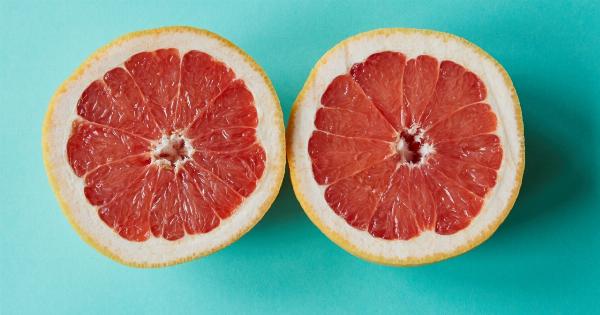Kidneys are an essential part of our urinary system that helps to filter the waste material from our blood to make urine.
However, when the urine is not diluted properly or contains too much of certain substances like calcium, oxalate, and purines, it can lead to the formation of kidney stones. Kidney stones are small, hard mineral deposits that form inside the kidneys and can cause severe pain and discomfort. In this article, we will understand the causes, symptoms, and treatment of kidney stones.
Causes of Kidney Stones
Kidney stones are formed due to the accumulation of minerals and salts in the urine that bind together and form a solid mass. The following are the common causes of kidney stones:.
Dehydration
When we don’t drink enough water, the urine becomes more concentrated, and minerals start to stick together, leading to kidney stone formation.
Diet
A diet that is high in salt, sugar, and protein can increase the concentration of urine, leading to kidney stone formation.
Moreover, the intake of foods that contain oxalate, such as spinach, rhubarb, and peanuts, can contribute to the formation of calcium oxalate stones.
Family history
A family history of kidney stones increases your risk of developing the condition. Certain genetic disorders also increase your risk of developing kidney stones, such as Cystinuria, Hyperoxaluria, and Hypercalciuria.
Medical conditions
Medical conditions like urinary tract infections, gout, and metabolic disorders like diabetes and obesity can also increase the risk of kidney stone formation.
Symptoms of Kidney Stones
Kidney stones may not always cause symptoms, but when they do, they can cause severe pain and discomfort. The following are the common symptoms of kidney stones:.
Pain in the back, belly, or side
The pain is often severe and can come in waves. It can be felt in the back, belly, or side of the body.
Painful urination
When the kidney stone passes through the ureter, the narrow tube that connects the kidney to the bladder, it can cause a burning sensation during urination and may also cause frequent urges to urinate.
Blood in urine
Kidney stones can cause bleeding in the urinary tract, which can lead to blood in the urine. The urine may appear pink, red, or brown.
Nausea and vomiting
Kidney stones can cause nausea and vomiting due to the severe pain and discomfort they cause.
Treatment of Kidney Stones
The treatment of kidney stones may vary depending on the size and location of the stone. The following are the common treatment options for kidney stones:.
Drinking water
Drinking plenty of water is the first line of treatment for kidney stones. It helps to dilute the urine and flush out the stone from the urinary tract.
Pain management
Pain management with the help of over-the-counter painkillers like ibuprofen can help to ease the pain and discomfort caused by kidney stones.
Medical therapy
Medical therapy may be recommended for some types of kidney stones. Medications like alpha-blockers can help to relax the muscles in the ureter, allowing the stone to pass easily.
Surgery
In rare cases, surgery may be needed to remove the kidney stone, especially if it is too large or causing severe complications.
Prevention of Kidney Stones
Prevention is the best way to avoid kidney stones. The following are some tips to prevent the formation of kidney stones:.
Stay hydrated
Drinking plenty of water can help to flush out the minerals and salts before they can accumulate and form a stone.
Eat a balanced diet
Eating a diet that is low in salt, sugar, and protein and contains adequate amounts of calcium and fiber can help to prevent the formation of kidney stones.
Limit intake of oxalate-rich foods
If you have had kidney stones in the past, limiting your intake of oxalate-rich foods like spinach, rhubarb, and peanuts can help to prevent their recurrence.
Seek medical attention
If you have a family history of kidney stones or have any underlying medical conditions that increase your risk of developing kidney stones, seek medical attention to prevent their formation.






























